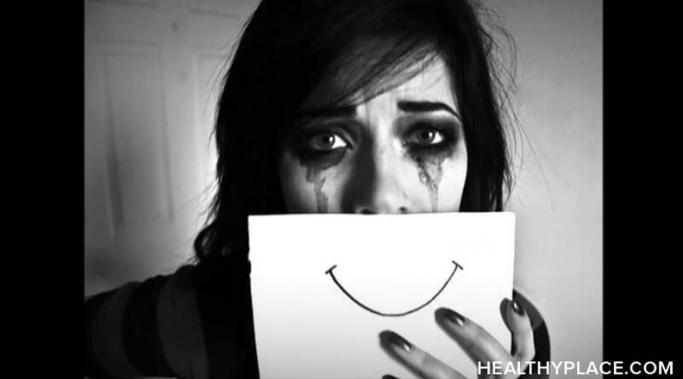Blogs
Happy holidays, all. I am back from my family sojourn and feeling exhausted from it. Which is odd, actually, because nothing stressful happened. I worked, we ate, we played cards we pretended to be happy (some more than others) and the holiday passed by.
And a giant "meh" was heard by all.
And yet still I find myself crippled with exhaustion and stress post-holiday. Why, exactly, is that?
I love to pop some popcorn and watch an unassuming protagonist discover that his friends, his family, his whole life is not quite what it seems, and then go about the dangerous business of solving the mystery that has become his reality. Others may try to convince the hero that he’s confused or delusional, but part of what I love about a good psychological thriller is that the hero is always vindicated in the end. And while there are real people whose lives are as filled with conspiracy and intrigue as a box office hit, many of them are living in a false world made up of schizophrenic delusions. And it’s not a glamorous world. It’s a world fueled by mental illness, by the symptoms of schizophrenia.
As 2011 slinks silently towards the exit sign, like a kleptomaniac at a bridal shower clutching a bag from Neiman Marcus, I must take time out from my busy schedule to pen, yet again, the Funny In The Head Family Letter.
Naturally, both of us would much rather speak with all of you individually but, between making Halloween costumes for the homeless, managing our halfway house for wayward squirrels, and building awareness for The Hugh Manatee Memorial Foundation, there simply isn’t enough time.
(By the way, our new slogan, “Oh The Hugh Manatee Foundation” has been very well received.)
Many people with borderline personality disorder (BPD) have suffered from a traumatic event. As a result, their BPD symptoms are sometimes triggered by reminders of the trauma. Triggers can result in a flare-up of BPD symptoms, ranging from a mild depression to a suicidal crisis. So how do you face them?
There are times when your eating disorder and/or other co-morbid illnesses require inpatient psychiatric treatment. In an earlier post, I discussed my decision to enter an inpatient psychiatric hospital for anorexia, alcohol abuse treatment. In this video, I talk more about why I need inpatient eating disorders treatment.
Right. Here I go again---another strange phrase that may be construed as useless. I could title this blog "I Am Different." Or, to push any thoughts of narcissism aside--"We Are Different" might work well. But that doesn't work. Not really. Particularly among the masses where people are both similar and dissimilar.
In February 2010, I entered inpatient treatment for anorexia nervosa, anxiety, and depression. I felt like a complete failure that this was my sixth inpatient admission, and I vowed that it would be my last admission.
On Monday, I will once again admit myself to the hospital for six days of psychiatric treatment. It was a difficult decision to make, and one that many of us struggling with eating disorders and co-morbid illnesses often face.
I just finished reading another mother's memoir about her son's schizophrenia called This Stranger, My Son. I'd not heard of this one until a media producer I was working for (as voice talent) suggested I read it. Evidently she had read it in high school, years ago, and it has stayed with her ever since.
The holidays are no longer around the corner; the holidays are now here - on top of us. The holidays have overtaken us. They have lay siege to our everyday lives and they have won. The holidays! Ack!
And while this sieging of lives has its plusses (like prezzies) it also has its downsides - like instability.
So now that you're staring the fat man in the eye, here's what you need to know to have a safe holiday and an unhospitalized new year.
We get lots of Top 10 lists this time of year. So I’ve made up a list of my own. It’s the Top 10 Things I Know I Should Do to Battle Depression.






